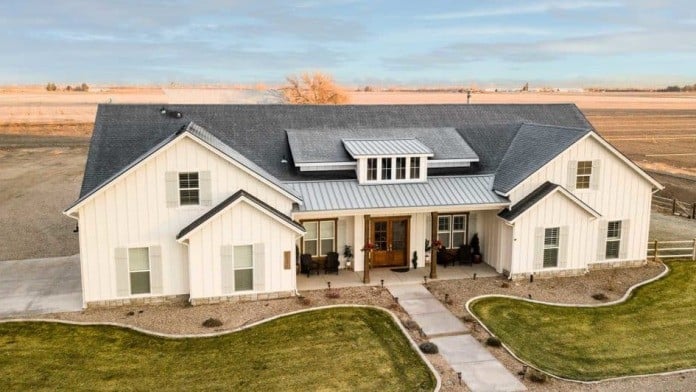I liked the way they treated me and how they made my perspective change. This place is one of those that opens your mind and turns your life around; I am delighted to be aware of what happens around me and not to be sunk in a sea of drugs as I before!
About Raise the Bottom Training and Counseling
MAT is the gold standard in evidence based therapy. It is highly effective in tackling addiction to opioids, alcohol and stimulants. The technique uses counseling alongside meds approved by the FDA to support recovery. The facility prescribes methadone, Suboxone and Vivitrol for this purpose. These meds reduce opioid withdrawal symptoms and curb cravings. This makes you more responsive to behavioral therapy. They offer individual and group therapy that draws from evidence based models to help you address the psychological symptoms of opioid withdrawal. The goal is to equip you with the tools to tackle negative emotions, thoughts and behavioral patterns that fuel opioid misuse.
Their group therapy cut across recovery aspects like relapse prevention and life skills. The relapse prevention group focuses on abstinence, maintenance and relapse prevention during recovery. I especially like the life skill group as it teaches everyday skills like money management, effective communication and health education. You can gain job seeking knowledge, resume building and house hunting. These can make a big difference in your lasting recovery.
There’s even a specialized support group for pregnant and nursing moms. This group focuses on helping moms navigate recovery while balancing the unique challenges of pregnancy and parenting. It provides a safe space to connect with others in similar situations, share experiences and receive guidance specific to their needs.
The facility also offers family counseling and strongly encourages family involvement in recovery. Family counseling fosters positive family dynamics by mending relationships, rebuilding trust and improving communication. This can significantly strengthen your support network. Your families and friends can also benefit from local support groups like Al-Anon and Nar-Anon. These groups can teach them practical ways to support you in recovery and grant them insights on maintaining their wellbeing. It’s all about building strong coping skills, staying sober and preventing relapse.
Folks with co-occurring conditions will receive psychiatric care like medication management alongside addiction therapy. Their aftercare support may include referral to peer based groups or connection to community resources like housing and employment services.
Latest Reviews
Rehab Score
Gallery
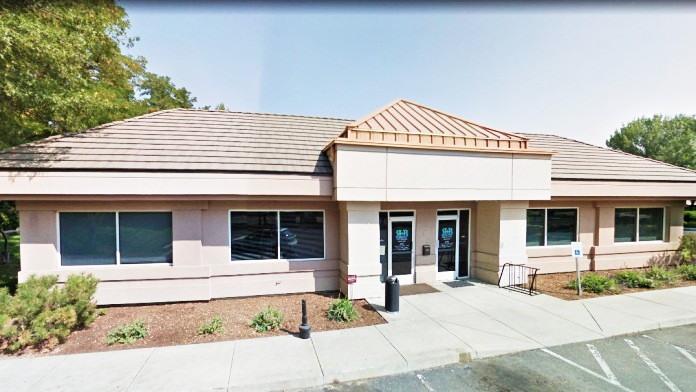
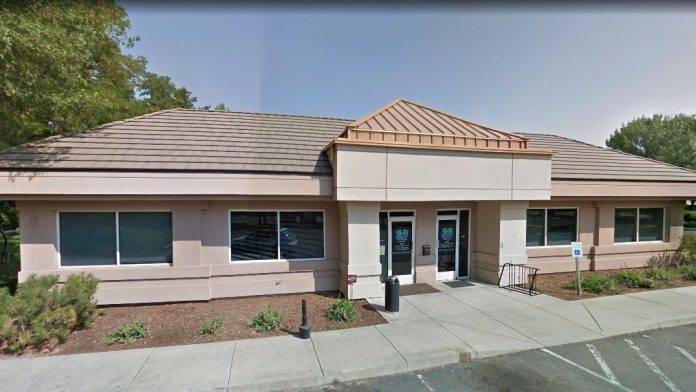
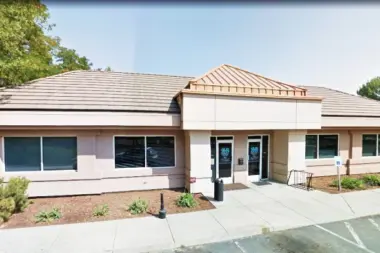
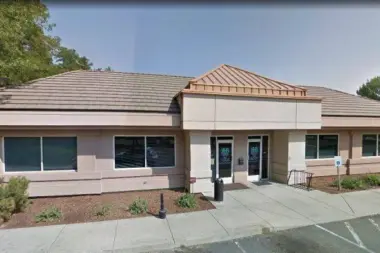
Other Forms of Payment
Private insurance refers to any kind of healthcare coverage that isn't from the state or federal government. This includes individual and family plans offered by an employer or purchased from the Insurance Marketplace. Every plan will have different requirements and out of pocket costs so be sure to get the full details before you start treatment.
Self-pay involves paying for treatment out of your own pocket. You can use savings or credit, get a personal loan, or receive help from family and friends to fund your treatment. If you don't have insurance or your insurance plan doesn't cover a specific program, self-pay can help ensure you still get the care you need.
Financial aid can take many forms. Centers may have grants or scholarships available to clients who meet eligibility requirements. Programs that receive SAMHSA grants may have financial aid available for those who need treatment as well. Grants and scholarships can help you pai for treatment without having to repay.
Sliding scale payments are based on a client's income and family size. The goal is to make treatment affordable to everyone. By taking these factors into account, addiction recovery care providers help ensure that your treatment does not become a financial burden to you or your family, eliminating one barrier to care.
Military members, veterans, and eligible dependents have access to specific insurance programs that help them get the care they need. TRICARE and VA insurance can help you access low cost or no cost addiction and mental health treatment. Programs that accept military insurance often have targeted treatment focused on the unique challenges military members, veterans, and their families face.
Medicaid is a state based program that helps lower-income individuals and families pay for healthcare. Medicaid covers addiction treatment so those enrolled can use their coverage to pay for rehab. When a program accepts Medicaid the client often pays very little or nothing out of their own pocket.
Medicare is a federal program that provides health insurance for those 65 and older. It also serves people under 65 with chronic and disabling health challenges. To use Medicare for addiction treatment you need to find a program that accepts Medicare and is in network with your plan. Out of pocket costs and preauthorization requirements vary, so always check with your provider.
Addiction Treatments
Levels of Care
Outpatient Programs (OP) are for those seeking mental rehab or drug rehab, but who also stay at home every night. The main difference between outpatient treatment (OP) and intensive outpatient treatment (IOP) lies in the amount of hours the patient spends at the facility. Most of the time an outpatient program is designed for someone who has completed an inpatient stay and is looking to continue their growth in recovery. Outpatient is not meant to be the starting point, it is commonly referred to as aftercare.
Clients requiring treatment in an inpatient rehab are often those who need stabilization support as they exit detox or contend with a life crisis. Residing at the treatment facility enables clients to focus exclusively on their recovery. They engage in extensive psychotherapy and recovery-focused life skills training to support their sustained sobriety and prepare them for outpatient and community-based care. Evidence-based holistic therapies, such as experiential therapy and meditation, are also commonly available.
Clients in an intensive outpatient program (IOP) are typically in early recovery or are at an elevated relapse risk. This includes those who are exiting detox or inpatient care, those in crisis, and those who have chosen IOP in lieu of hospitalization. Intensive outpatient treatment involves a minimum of nine and a maximum of 20 treatment hours weekly. Most rehabs offer a variety of services, including medication assisted treatment (MAT), addiction counseling, recovery-focused life skills training, and holistic therapies.
Clients participating in a rehab aftercare program receive a variety of services designed to support their sustained sobriety and successful reintegration into their home, workplace, and community. Rehab aftercare services may include formal outpatient care, such as addiction counseling and recovery education provided in an outpatient treatment center. They may also include community-based services, including 12 step program induction, peer coaching, and vocational training. These programs are typically designed in partnership with the client's case manager.
Many recovery centers base their treatment models on 12 step programming, which emphasizes spiritual development and peer coaching. 12 step recovery is designed to help participants address the root causes of their addiction, take accountability for their choices, and let go of that over which they are powerless. Though these programs prioritize spiritual growth, religious affiliation isn't required. Participants regularly attend anonymous, free, peer-directed meetings and are mentored by a peer sponsor.
When an individual's life is negatively impacted by substance use but they are resistant to treatment, a drug intervention in Idaho may be appropriate. Drug intervention programs are designed to break through this resistance and motivate the person to get help. During the intervention, the specialist helps loved ones bring reality to the individual and break through barriers that are preventing them from getting the help they need.
The initial phase of addiction treatment typically involves 24-hour clinical care in Idaho. During this time, medical staff supervise the withdrawal process and treat any adverse symptoms or reactions that occur. These medical experts can prescribe and administer a number of medications proven to ensure the recovery process goes smoothly. For alcohol detox, benzodiazepines, valium, and Librium are often used to relieve symptoms of alcohol withdrawal. For cocaine detox, antidepressants such as desipramine or phentermine are used to treat cocaine withdrawal.
Drug and alcohol addiction often takes a heavy toll on one's body. Over time, a physical dependence can develop, meaning the body physiologically needs the substance to function. Detox is the process of removing drugs and/or alcohol from the body, a process that can be lethal if mismanaged. Medical detox is done by licensed medical professionals who monitor vital signs and keep you safe, healthy, and as comfortable as possible as you go through detox and withdrawal.
Treatments
The goal of treatment for alcoholism is abstinence. Those with poor social support, poor motivation, or psychiatric disorders tend to relapse within a few years of treatment. For these people, success is measured by longer periods of abstinence, reduced use of alcohol, better health, and improved social functioning. Recovery and Maintenance are usually based on 12 step programs and AA meetings.
Drug rehab in Idaho provides treatment for addiction to drugs. It usually includes a combination of treatment methods that can involve counseling, medication, and a variety of evidence-based therapies. Programs are designed to help individuals manage their substance use disorder long-term.
Many of those suffering from addiction also suffer from mental or emotional illnesses like schizophrenia, bipolar disorder, depression, or anxiety disorders. Rehab and other substance abuse facilities treating those with a dual diagnosis or co-occurring disorder administer psychiatric treatment to address the person's mental health issue in addition to drug and alcohol rehabilitation.
Opioid rehabs specialize in supporting those recovering from opioid addiction. They treat those suffering from addiction to illegal opioids like heroin, as well as prescription drugs like oxycodone. These centers typically combine both physical as well as mental and emotional support to help stop addiction. Physical support often includes medical detox and subsequent medical support (including medication), and mental support includes in-depth therapy to address the underlying causes of addiction.
Substance rehabs focus on helping individuals recover from substance abuse, including alcohol and drug addiction (both illegal and prescription drugs). They often include the opportunity to engage in both individual as well as group therapy.
Programs
Adult rehab programs include therapies tailored to each client's specific needs, goals, and recovery progress. They are tailored to the specific challenges adult clients may face, including family and work pressures and commitments. From inpatient and residential treatment to various levels of outpatient services, there are many options available. Some facilities also help adults work through co-occurring conditions, like anxiety, that can accompany addiction.
Young adulthood can be an exciting, yet difficult, time of transition. Individuals in their late teens to mid-20s face unique stressors related to school, jobs, families, and social circles, which can lead to a rise in substance use. Rehab centers with dedicated young adult programs will include activities and amenities that cater to this age group, with an emphasis on specialized counseling, peer socialization, and ongoing aftercare.
Recovery is most successful when clients feel accepted and validated by their peers and treatment providers. Facilities that offer LGBTQ-inclusive programming are committed to creating a safe space where everyone can grow and recover without fear of judgment or discrimination. They will have dedicated policies in place to create a safe and supportive environment that fosters free expression.
Serving in the military is both mentally and physically challenging, and can result in trauma that persists even after combat ends. Military programs are tailored to the specific and often complex needs of active duty personnel, veterans, and military families. Clients often access these programs through the U.S. Department of Veterans Affairs (VA).
Clinical Services
Research has shown that cognitive behavioral therapy (CBT) in Idaho is one of the most effective forms of therapy to treat substance use disorders and accompanying mental health disorders such as anxiety and depression. The focus of this method is to learn about and change patterns of thinking and behavior.
Dialectical behavior therapy involves individual and group sessions. During individual sessions, you will work on managing intense emotions. Group skills training sessions aim to enhance skills for daily living. They focus on mindfulness, distress tolerance, interpersonal effectiveness, and emotion regulation.
Unlike other more coercive methods, motivational interviewing does not impose change on the client. Instead, the therapist asks questions, listens, and reflects the client's thoughts back to them. This helps the person come to their own conclusions and supports making changes on their own terms based on those conclusions.
Trauma therapy addresses traumatic incidents from a client's past that are likely affecting their present-day experience. Trauma is often one of the primary triggers and potential causes of addiction, and can stem from child sexual abuse, domestic violence, having a parent with a mental illness, losing one or both parents at a young age, teenage or adult sexual assault, or any number of other factors. The purpose of trauma therapy is to allow a patient to process trauma and move through and past it, with the help of trained and compassionate mental health professionals.
Couples therapy provides the opportunity to discuss challenges in the relationships and learn healthy ways to work through them. Therapy may address issues such as your roles, beliefs, finances, health, substance use, and children.
During family therapy in Idaho, members have a safe space to express their feelings about the impact addiction has had on the family unit. The process helps reduce the stigma associated with mental health and enhances each member's understanding of addiction. By promoting a unified approach, family therapy helps to support the recovery journey.
Accreditations

The Substance Abuse and Mental Health Services Administration (SAMHSA) is a branch of the U.S. Department of Health and Human Services. Established in 1992 by congress, SAMHSA's mission is to reduce the impact of substance abuse and mental illness on American's communities.
SAMHSA Listed: Yes

The Commission on Accreditation of Rehabilitation Facilities (CARF) is a non-profit organization that specifically accredits rehab organizations. Founded in 1966, CARF's, mission is to help service providers like rehab facilities maintain high standards of care.
CARF Accreditation: Yes

State Licenses are permits issued by government agencies that allow rehab organizations to conduct business legally within a certain geographical area. Typically, the kind of program a rehab facility offers, along with its physical location, determines which licenses are required to operate legally.
State License: Idaho
Contact Information
9196 West Barnes Drive
Boise ID, 83709

